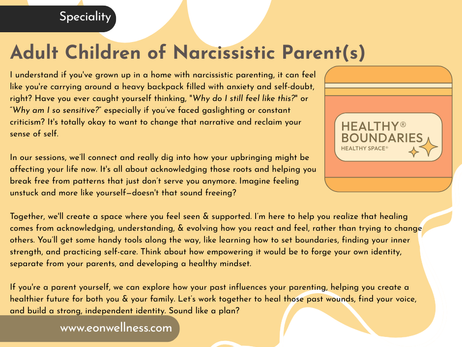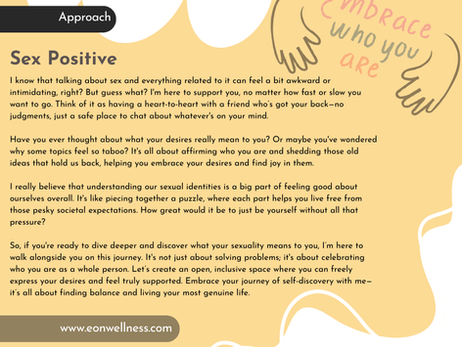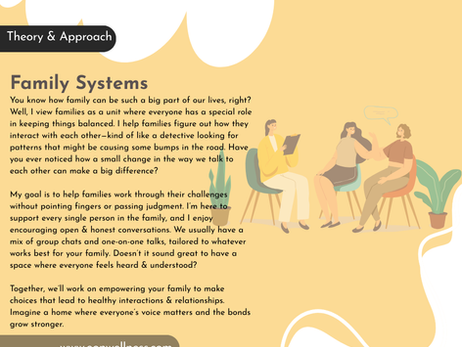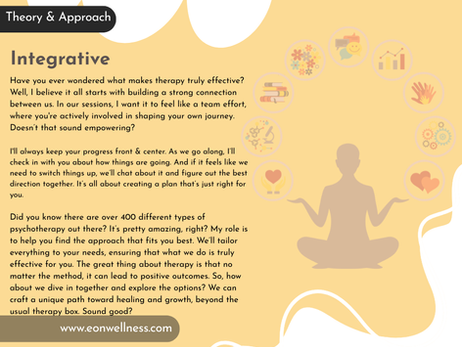top of page


Supporting Your Journey, One Session at a Time
In this safe space you can chat about anything that's on your mind, whether it's big or small. Have you ever felt unsure about what to talk about? That's totally normal, and I'm here to help you work through those feelings. Together, we'll figure out the conversations that can lead to healing and personal growth.

bottom of page
































